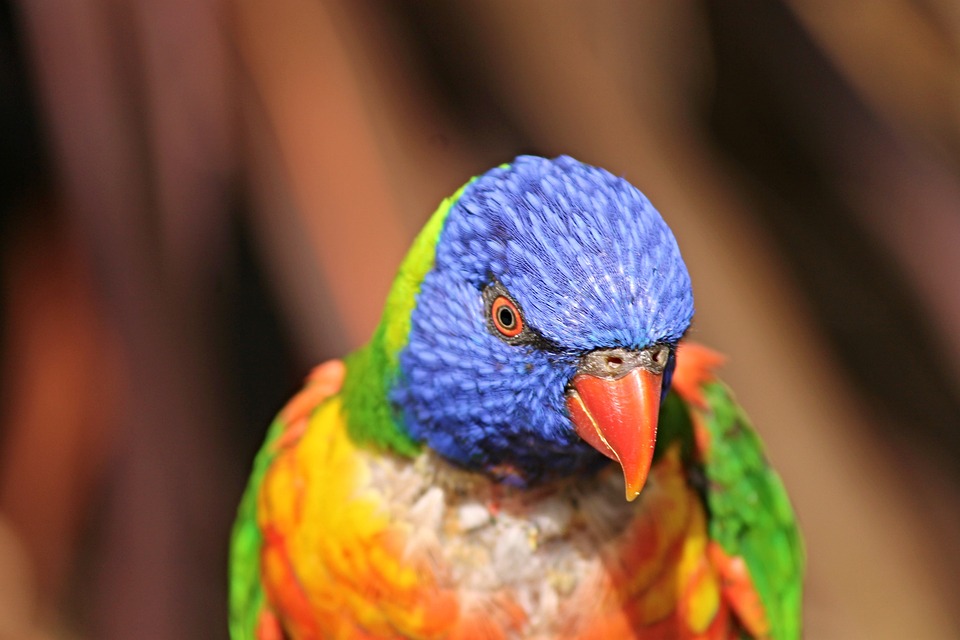*Unlock Your Parrot’s Potential with a Training Challenge Day*
Parrots are intelligent and social creatures that thrive on mental stimulation and interactive activities. One way to keep your feathered friend engaged and continuously learning is by organizing a Parrot Training Challenge Day. This special day allows you to introduce complex tricks and behaviors to your parrot’s repertoire while strengthening your bond. In this article, we will guide you through the process of planning and executing a successful training challenge day for your parrot.
**1. Setting the Stage: Preparing for the Challenge Day**
Before diving into the training challenges, it is essential to create an optimal environment for your parrot’s learning experience. Here are some key steps to follow:
**1.1 Choose the Right Location:** Select a quiet and distraction-free area in your home where you can focus solely on training. Minimize noise, such as TV or radio, to help your parrot concentrate.
**1.2 Gather Essential Training Tools:** Ensure you have all the necessary training tools within reach, including treats, clicker, target stick, and any props required for specific tricks.
**1.3 Establish a Training Routine:** Set a specific time for your Parrot Training Challenge Day. Consistency is crucial, as it helps your parrot anticipate and engage in the training session.
**2. Selecting Complex Tricks and Behaviors**
To make the Training Challenge Day truly exciting, introduce your parrot to complex tricks and behaviors that will push their cognitive and physical abilities. Here are some ideas to get you started:
**2.1 Advanced Trick Training:** Teach your parrot tricks like fetching specific objects, playing dead, or flipping objects with their beak. These tricks require patience, persistence, and a solid foundation in basic training.
**2.2 Problem-Solving Challenges:** Engage your parrot’s problem-solving skills by presenting them with puzzles or toys that require manipulation to obtain a reward. For example, introduce a puzzle box or a foraging toy that requires the parrot to solve a series of steps to access a treat.
**2.3 Speech Training:** If your parrot has already mastered basic vocabulary, challenge them with more complex phrases or sentences. Encourage them to mimic sounds or words they haven’t learned before, expanding their verbal repertoire.
**3. Structuring the Training Session**
Maintaining structure and organization during the training session is crucial for optimal results. Follow these guidelines to ensure a productive and enjoyable Training Challenge Day:
**3.1 Break It Down:** Complex tricks and behaviors should be broken down into smaller, manageable steps. Teach each step separately and gradually combine them until your parrot can perform the entire behavior.
**3.2 Positive Reinforcement:** Use positive reinforcement techniques such as treats, praise, and the clicker to reward your parrot’s correct responses. This encourages them to repeat the desired behavior and strengthens the training bond.
**3.3 Keep Sessions Short and Frequent:** Parrots have limited attention spans, so keep training sessions short (around 10-15 minutes) and frequent. Multiple short sessions throughout the day are more effective than one long session.
**FAQs: Answers to Your Parrot Training Challenge Day Questions**
*Q: How often should I organize a Parrot Training Challenge Day?*
A: It is recommended to hold a Training Challenge Day once a month. This frequency ensures your parrot has ample time to practice and master the tricks and behaviors introduced.
*Q: What if my parrot is reluctant to participate in the training session?*
A: If your parrot seems disinterested or reluctant, it is crucial to assess their motivation. Ensure the training environment is free from distractions and offer high-value rewards to increase their motivation.
*Q: Can older parrots learn complex tricks too?*
A: Absolutely! Parrots of all ages can learn new tricks and behaviors. However, older parrots may require more patience and time compared to younger ones. Adjust the training pace accordingly and celebrate every small achievement.
By organizing a Parrot Training Challenge Day, you provide your parrot with mental stimulation, physical exercise, and a chance to showcase their intelligence. Remember, patience, consistency, and positive reinforcement are key ingredients for success. Embrace the journey and enjoy the progress your parrot makes as you both embark on this training adventure together.









